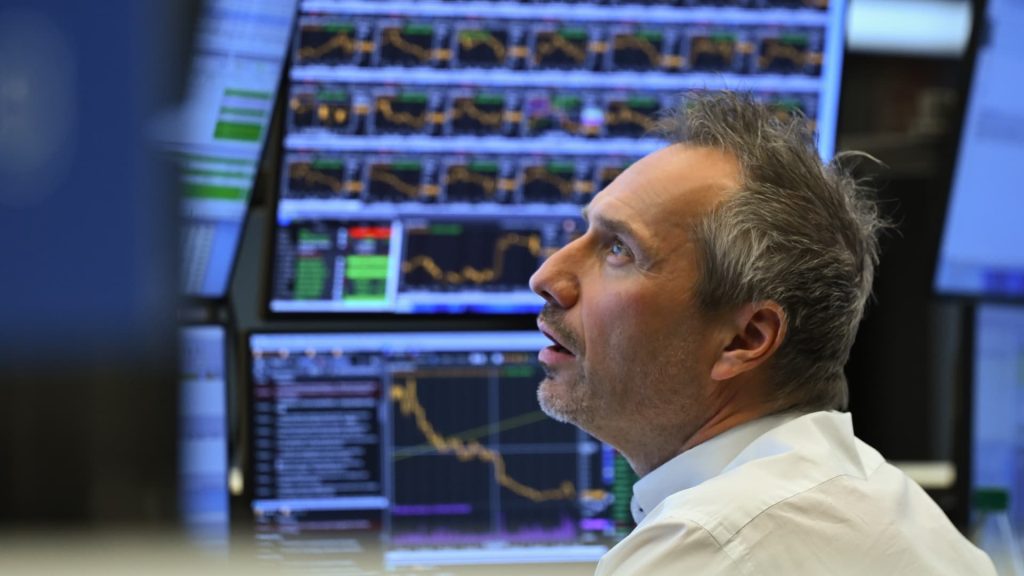European Stocks Close Slightly Lower
On Friday, European stocks finished the day marginally down, with the regional Stoxx 600 index decreasing by 0.1%.
Notably, stocks in the industrials and oil and gas sectors experienced significant declines of 1.25% and 1.2%, respectively, while health-care and utilities stocks saw gains of about 1%.
Analyst Insights on Market Volatility
Alex Morris, the president and chief investment officer of F/m Investments, spoke about tariffs and their implications for global markets.
U.S. Stocks Start Friday in the Red
U.S. stocks opened lower on Friday.
The S&P 500 fell by 0.5%, the Dow Jones Industrial Average dropped 0.2%, while the Nasdaq Composite declined by 0.3%.
— Hakyung Kim
Escalation of Trade War with China
On Friday, tensions rose in the trade war as China announced it would increase tariffs on U.S. goods to 125% from the previous 84%.
This decision followed confirmation from the Trump administration regarding the U.S. tariffs on Chinese imports, now totaling 145%.
According to a translated statement from the Chinese ministry, the current high tariff levels make it economically unfeasible for the U.S. to export goods to China.
—Anniek Bao, Michelle Fox
U.S. Hit Harder in Trade War than Europe, EU Official Warns
Valdis Dombrovskis, the European Commissioner for Economy and Productivity, explained on Friday how tariffs from President Trump could negatively impact the U.S. economy.
Current models suggest that U.S. GDP could decline by 0.8% to 1.4% by 2027, while negative effects on the EU would be limited to about 0.2% of GDP.
He emphasized that if tariffs are seen as a permanent measure or if further retaliations occur, U.S. GDP could ultimately reduce by 3.1% to 3.3%. In contrast, the EU’s potential impact is projected at only 0.5%.
During the address, Dombrovskis stressed the importance of the longstanding U.S.-EU trading relationship, valued at 1.6 trillion euros ($1.8 trillion) in 2023.
Novartis Commits $23 Billion to U.S. Amid Tariff Threats
Novartis announced plans to invest $23 billion in the U.S. over the next five years to expand and construct ten facilities. This move, occurring amidst looming tariffs from the Trump administration, is intended to ensure that key Novartis medications will be manufactured domestically.
While tariffs were considered, CEO Vas Narasimhan stated that they weren’t the primary reason for this decision. He highlighted the investment’s alignment with a supportive U.S. regulatory environment for innovation.
— Karen Gilchrist



